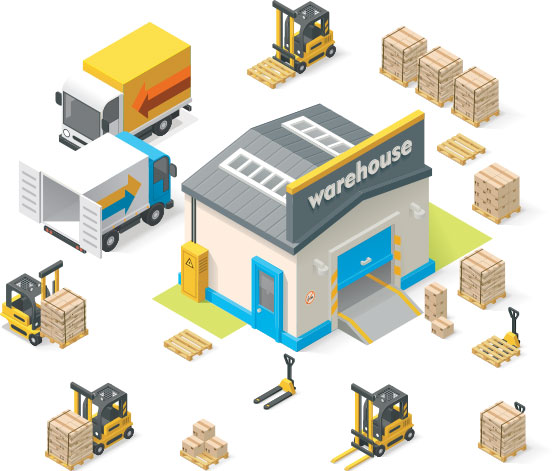

By the end of this course delegates will be able to:
Logistics Consultants, Logistics and Financial Managers, Accounting and Operations Managers, Third-Party Logistics Providers, Supply Chain and Logistics Managers and Professionals, Operations Managers, Logistics Professionals, Logistic Providers, Logistic Administrators, Logistics Planning and Inventory Managers, Supply, Buying, Purchase, Logistics, Materials and Supply Chain Professionals, General Services Personnel, Purchasing and Procurement Managers, Retailers, Warehouse Personnel, Transportation and Distribution Managers/Personnel, Inventory and Warehouse Control Professionals, Freight Forwarders and Linear Specialists, Production Managers, Production Planners, Financial Managers, Project Managers, Distribution Center Supervisors, Line Managers, Fleet Managers, Fleet Supervisors, Fleet Operators, Fleet Inspectors
The Role of Warehousing and Stores
Inventory, Stock Analysis and Classifying Products
Stock Control
The Warehouse and Operational Principles
Equipment
Warehouse Information Communications Technology
Regulations
Productivity, Cost and Service
Outsourcing
People Management
Developments and Trends
CDGA attendance certificate will be issued to all attendees completing minimum of 75% of the total course duration.
| Code | Date | Venue | Fees | Register |
|---|---|---|---|---|
| LOG113-01 | 08-02-2026 | Dammam | USD 5450 | |
| LOG113-02 | 10-05-2026 | Dubai | USD 5450 | |
| LOG113-03 | 24-08-2026 | Amsterdam | USD 6950 | |
| LOG113-04 | 22-11-2026 | Amman | USD 5450 |

In today's global business environment many companies have increasingly decentralized and outsourced a wide range of their business activities. This ranges from manufacturing, IT, Administration, Mark ...

The Warehouse forms a critical link in a company’s supply chain. It serves as a marshaling point for incoming materials and a distribution point for delivering these materials to customers. Material m ...

The role of the warehouse has changed from simple stock-keeping to one that is featured prominently as an important part of the supply chain strategy. It has become more challenging to manage a wareho ...

For any large manufacturer, producer or distributor, the efficient operation and management of the warehouse is a key area where competitive advantage can be gained and exploited. From the fundamenta ...
Providing services with a high quality that are satisfying the requirements
Appling the specifications and legalizations to ensure the quality of service.
Best utilization of resources for continually improving the business activities.
CDGA keen to selects highly technical instructors based on professional field experience
Since CDGA was established, it considered a training partner for world class oil & gas institution
3012, Block 3, 30 Euro Business Park, Little Island, Co. Cork, T45 V220, Ireland
Mon to Fri 09:00 AM to 06:00 PM
Contact Us anytime!
Request Info